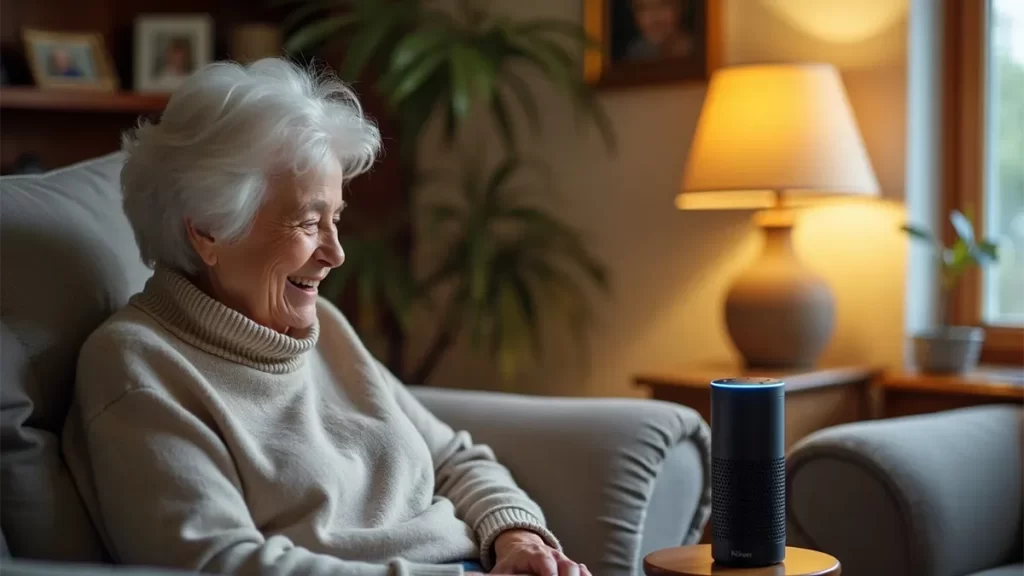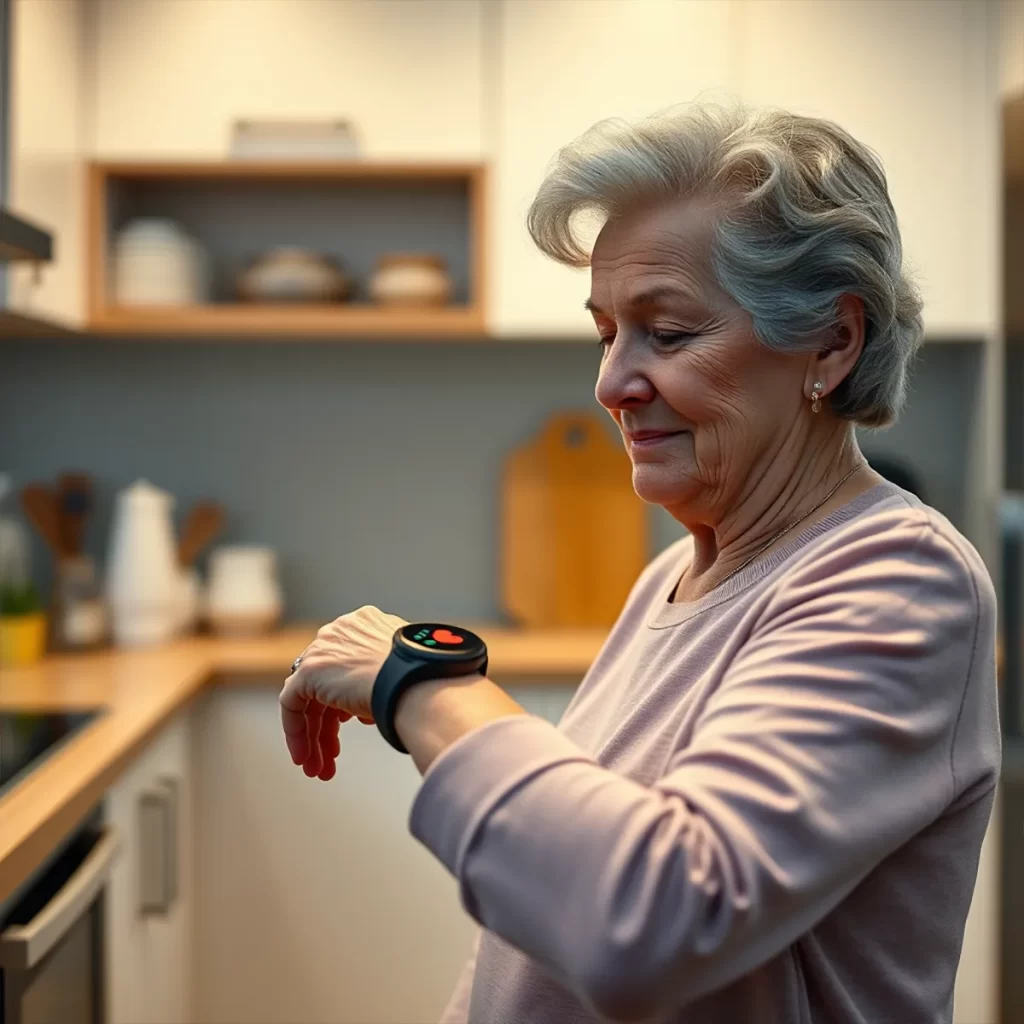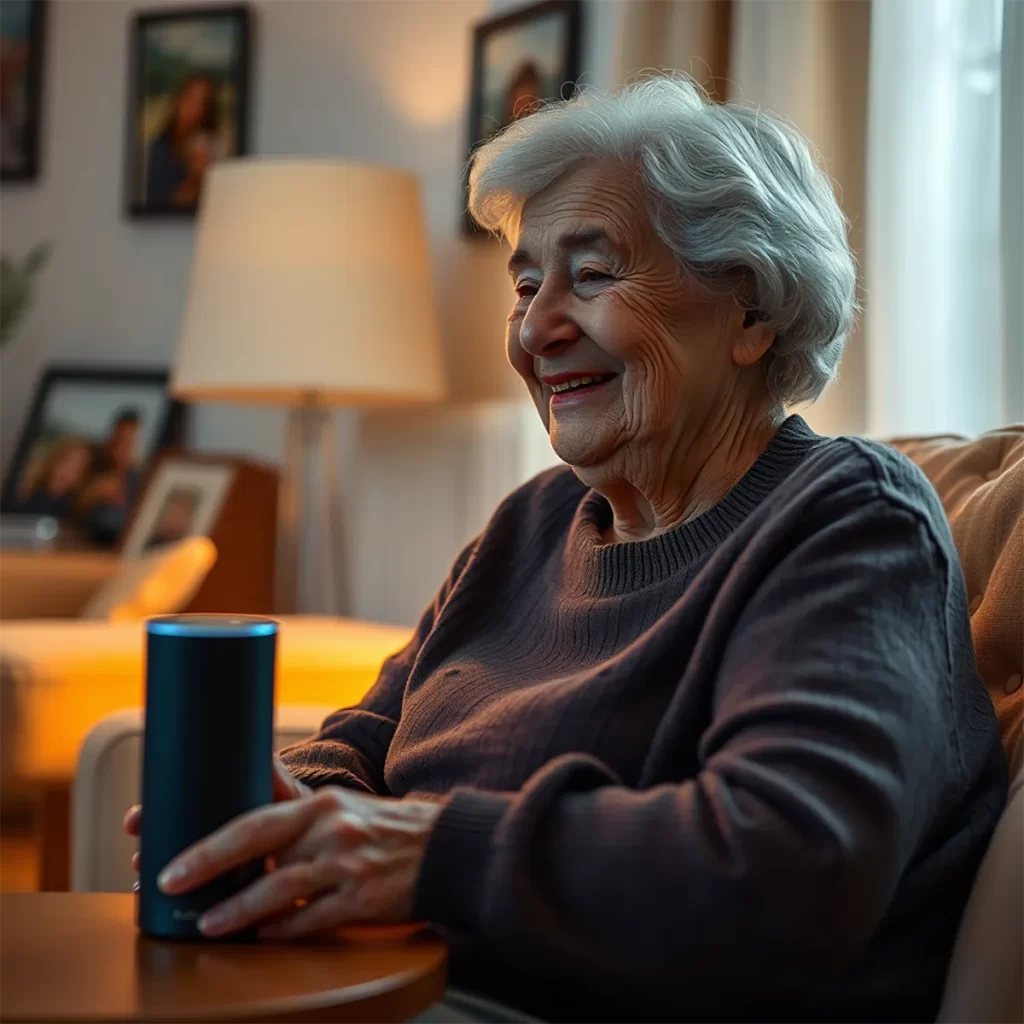How Artificial Intelligence Can Help Seniors Overcome Technological Barriers
Have you ever imagined having a helper who’s always there for you, ready to answer your questions and make your day a little easier? That’s exactly how artificial intelligence can help—by being that constant support you need, simplifying everyday tasks and improving your quality of life.
Well, that’s exactly how artificial intelligence can help. It’s beginning to transform daily life, and its potential to assist older adults is truly incredible.
Many seniors struggle to use technology. After all, for those who have spent much of their lives without computers, smartphones, and social media, it can be challenging to keep up with the changes that seem to arrive faster every day.
However, AI has the potential to make this experience smoother, more practical, and even fun.
The Advantages of AI for Seniors
Let’s take a look at some of the advantages that AI can offer to those in their golden years:
1. Virtual Assistants: A Helping Hand
Virtual assistants like Alexa, Siri, and Google Assistant are like personal helpers that never take a day off. They can do things such as:
- Remind you to take medication: Just ask, and the assistant will remind you at the right time.
- Answer simple questions: Is it cold today? What time is your favorite TV show? Instead of searching the internet, just ask.
- Call for help: In an emergency, all you need is a voice command, and the assistant can call a relative or even emergency services.
These tools are simple to use — they don’t require tapping on complicated screens, which is great for those who aren’t as comfortable with technology.
2. Companionship Against Loneliness
Loneliness is a problem that affects many seniors, especially those who live alone. What if a robot could talk, listen to your stories, and even tell jokes?
Research is already being done on companion robots, like ElliQ, which can offer companionship, encourage exercise, and remind users of their daily activities. It’s not about replacing human contact but about providing an extra layer of support, especially on days when no one can visit.
“Having someone — or something — always there, ready to listen, can make a big difference for those who face loneliness.”
3. Health and Safety: AI Taking Care of You
There are AI-powered health devices that help monitor vital signs and send automatic alerts to family or doctors if something seems wrong. Imagine a smartwatch that detects if you’ve fallen and immediately calls for help.
These advances bring more safety and peace of mind, both for seniors and their families.
In the future, we can imagine intelligent sensors throughout the house that not only monitor falls but also detect changes in behavior or health patterns — such as when someone is less active than usual — and notify the family.
It would be like having a pair of eyes looking after you discreetly, without invading your privacy.
Potential Risks: The Fine Line Between Technology and Humanity
Of course, every innovation comes with its risks. Let’s discuss some of them:
1. The Risk of Dehumanization
Although the idea of a companion robot is intriguing, we need to think about an important question: what about human contact? Are we replacing real connections with artificial solutions?
It may be convenient to have a robot that listens, but this should not become an excuse for family members to visit their elderly loved ones less or for fewer caregivers to be available.
Human contact is essential, and AI should be used as a complement, not a replacement.
“AI can help, but it can never replace the warmth of a friendly hand or the care of a heartfelt conversation.”
2. Privacy and Data Security
Another critical point is privacy. Many of these AI devices collect information — about health, habits, location. How can we ensure that this data is secure and not used improperly?
Seniors often may not understand the terms and permissions they are granting, leaving them vulnerable to misuse of their personal information.
Existing Solutions Already Helping
Despite the risks, many AI solutions are already helping seniors take advantage of this new technological wave. Let’s explore a few:
- Simple Tablets and Phones with Virtual Assistants: Devices with larger buttons and more intuitive interfaces, such as GrandPad, make it easier for seniors to access video calls and messages, keeping them connected with family.
- Health Devices Like the Apple Watch: In addition to monitoring health, the Apple Watch can detect falls and send alerts, offering extra safety for those living alone.
- Social and Companion Robots: Besides ElliQ, robots like Paro, a seal-shaped robot that responds to touch, help reduce stress and loneliness in elderly homes.
- Memory and Cognitive Training Apps: Apps like Lumosity help keep the mind active with games and challenges that improve memory and reasoning.
The Future of AI for Seniors
The future looks promising when we think about AI helping seniors. We can imagine:
- Full Smart Home Integration: Sensors, assistants, and even robots helping with daily chores, such as cooking or cleaning, to allow seniors to live more autonomously and comfortably.
- More Human Connections: Imagine a robot that not only responds but learns its user’s preferences and mood, adapting conversations to be more engaging and comforting.
- AI Encouraging Real Social Connections: Assistants that automatically schedule gatherings with friends, remind of birthdays, and encourage real interactions could be a very desirable future.
Conclusion: AI as an Ally, Not a Substitute
AI has tremendous potential to help seniors live more comfortably, safely, and even happily. It can be that friendly hand in moments of loneliness, ensure safety at home, and make the use of technologies that once seemed too complicated more accessible.
But it’s important to remember that technology should be used to connect us, not to isolate us. Human contact, care, and attention are irreplaceable. AI should be our ally, not our only companion.
Now tell me, do you know someone who could benefit from having a virtual assistant or an AI device? How do you see the balance between technology and humanity for older adults?
-

 Best Picks10 months ago
Best Picks10 months agoDriving Insurance: Get the Best Car Coverage Without Overpaying
-

 Best Rewards3 months ago
Best Rewards3 months agoBest rewards credit cards in 2025 for everyday use
-

 Personal Growth & Mindset1 year ago
Personal Growth & Mindset1 year agoTed Lasso Effect: 5 Goal-Setting Secrets You Must Know
-

 Career & Success1 year ago
Career & Success1 year ago30 Key Strategies for Growth: Mindset, Productivity & Wellness
-

 Personal Growth & Mindset1 year ago
Personal Growth & Mindset1 year agoMachado de Assis: This Viral TikTok Explains Why You Need to Read ‘The Posthumous Memoirs of Brás Cubas’ Now
-

 Career & Success12 months ago
Career & Success12 months agoChallenges of Not Having Goals: 5 tips to help you get started












